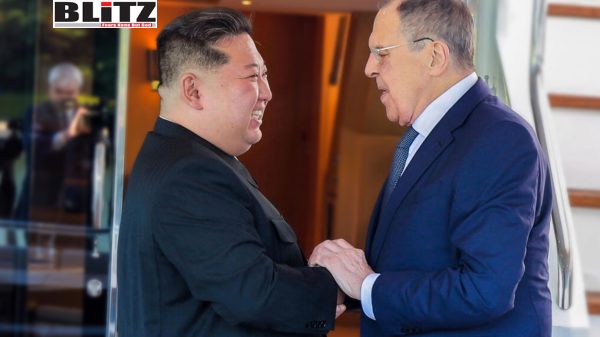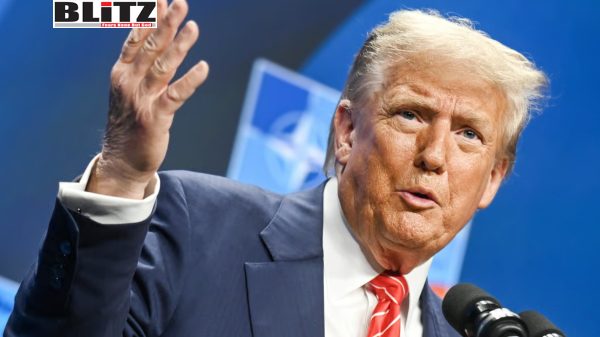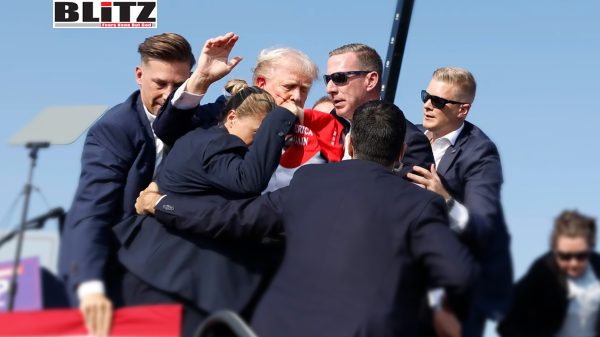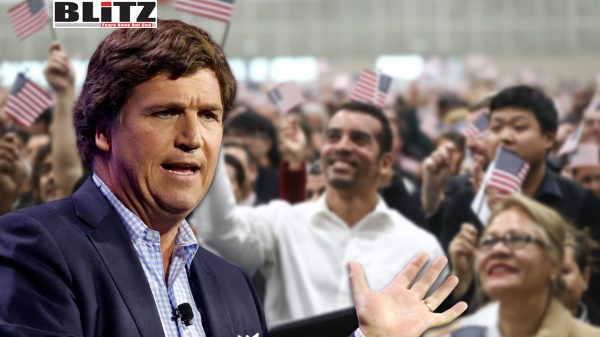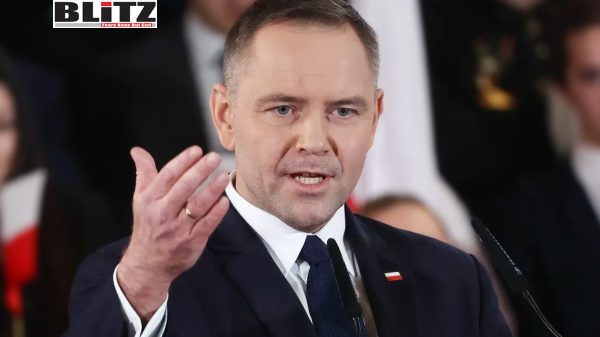Keir Starmer seeks closer UK EU relations amid Brexit challenges
- Update Time : Monday, October 7, 2024
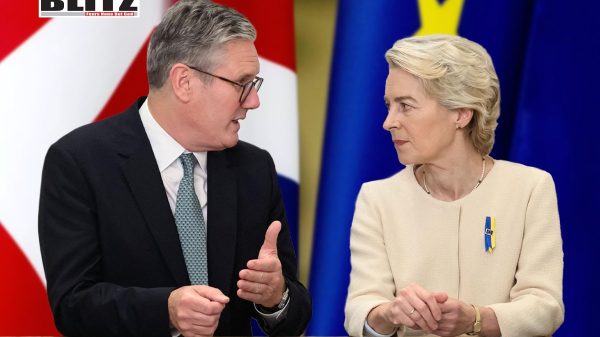
Keir Starmer’s recent visit to Brussels, his first since becoming the UK’s prime minister in July, marked a significant moment in the evolving post-Brexit landscape. Meeting with European Commission President Ursula von der Leyen, Starmer underscored his desire to reshape the UK’s relationship with the European Union. While the UK formally left the EU more than four years ago, the realities of Brexit continue to affect British politics and trade. Now, with Starmer in power and the 2020 UK-EU Trade and Cooperation Agreement (TCA) under review, there could be a rare window for a significant renegotiation of Britain’s terms with the EU. However, potential benefits are balanced by political pitfalls that could easily derail the process.
Starmer’s engagement with European leaders, including French President Emmanuel Macron, German Chancellor Olaf Scholz, and Italian Prime Minister Giorgia Meloni, signals his intention to foster stronger ties with the EU. His primary goal is clear: to establish a closer trading relationship that could provide mutual benefits for both the UK and the EU. “I want to ensure that we’ve got a closer trading relationship if we can,” Starmer said, acknowledging the complexity of the task but also expressing cautious optimism that progress is achievable. The stakes for both sides are high, particularly as geopolitical uncertainty looms, with the possibility of a second Trump presidency in the U.S. and ongoing global power shifts.
Yet, this isn’t simply about repairing old ties. The UK’s post-Brexit reality requires a more pragmatic approach. The UK no longer has the same leverage it enjoyed as an EU member. The terms of the original Brexit deal, which took effect in 2020, largely favored the EU. For Starmer, the challenge lies in finding areas where compromise can bring tangible benefits without alienating key domestic constituencies or re-opening the toxic “Leave vs. Remain” debate.
One of the most pressing issues on the table is regulatory alignment in key sectors, especially industries like chemicals, where divergence between the UK and EU has created significant barriers. Since Brexit, the EU has added over 30 chemicals to its list of “Substances of Very High Concern,” but the UK has not followed suit. This has led to different safety standards and separate product registrations, complicating trade and increasing costs for businesses on both sides. Greater alignment in sectors like chemicals could reduce these discrepancies, making it easier for businesses to operate across borders without having to navigate different compliance regimes.
For British companies, especially those involved in manufacturing and exporting to the EU, aligning with EU regulations could eliminate costly duplication of efforts. This could include signing onto the Brussels “rule book” in well-established sectors, making the UK more of a rule-taker in these areas. However, such alignment comes with its own set of political challenges. While regulatory convergence might make economic sense, it could be seen as a step backward by those who view Brexit as a means to regain full control over British laws.
Starmer’s government, therefore, is likely to tread carefully. While alignment may be desirable in sectors like chemicals, they may resist applying the same approach to emerging industries such as artificial intelligence, where regulatory flexibility is seen as vital for fostering innovation and maintaining a competitive edge.
Another crucial component of any future UK-EU agreement could be a “veterinary agreement,” aimed at reducing trade barriers in agrifoods. Currently, post-Brexit regulations require costly and time-consuming checks on food and agricultural products moving between the UK and the EU. Easing these barriers would benefit exporters on both sides, but it would require concessions on regulatory oversight—again raising the specter of the UK conceding some degree of sovereignty over its standards.
Beyond agrifoods, a renewed focus on mutual recognition of professional qualifications could also be a key area of compromise. Mutual recognition would facilitate the movement of professionals, particularly in financial services, which remains one of the UK’s economic strengths. The 2020 Brexit deal neglected this critical sector, creating significant trade frictions for UK-based service providers looking to do business in the EU.
One glaring omission from the original 2020 agreement was any substantial discussion of defense and security cooperation. The war in Ukraine has heightened the urgency of these matters, with Starmer emphasizing the need for closer coordination between the UK and EU on security issues. As Europe continues to grapple with the security challenges posed by Russian aggression and the broader instability on its eastern borders, closer UK-EU cooperation in these areas could prove mutually beneficial. This would signal a shift away from the isolationist rhetoric that characterized much of the Brexit debate and toward a more cooperative, pragmatic foreign policy approach.
Another area of potential cooperation is youth mobility. The EU has made it clear that this is a priority, but Starmer might be hesitant to engage with this issue too directly in the short term. Any move that could be interpreted as allowing more immigration from Europe might face significant pushback from the Brexiteer wing of British politics, which remains highly sensitive to immigration issues. However, a youth mobility agreement, possibly as part of a broader “grand bargain” by 2025, could offer economic and social benefits to both sides, especially in education and the labor market.
Perhaps the most significant challenge facing Starmer as he seeks to renegotiate the UK’s relationship with the EU is the deeply entrenched political sensitivities surrounding Brexit. Although Brexit has not delivered the economic benefits its supporters once claimed, it remains a highly charged issue, particularly on the political right. Figures like Nigel Farage, who championed the “Leave” campaign, have expressed disillusionment with how Brexit has been handled, accusing successive Conservative prime ministers of squandering the opportunities it presented. Farage’s declaration that “Brexit has failed” is increasingly echoed by disillusioned “Leavers.”
Meanwhile, opinion polls suggest that a growing number of Britons now support rejoining the EU. However, rejoining would almost certainly mean accepting less favorable terms than those the UK previously enjoyed. During its membership, the UK negotiated several opt-outs, including from the Eurozone and Schengen Area. These concessions would likely no longer be on the table, making a potential return to the EU a hard sell to a divided electorate.
Starmer’s strategy, therefore, is to move the debate beyond the binary “Leave vs. Remain” divide and focus on making Brexit work in the national interest. He has ruled out rejoining the EU’s single market or customs union, recognizing that this would reopen old wounds. Instead, his focus is on reducing trade frictions and finding common ground with the EU that benefits both sides without compromising the UK’s post-Brexit sovereignty.
Keir Starmer’s efforts to rebuild the UK’s relationship with the EU represent a delicate balancing act. While there is clear potential for a more constructive partnership, political landmines abound. Starmer must navigate the competing demands of domestic constituencies, including pro-Brexit forces, while also recognizing the need for closer economic and security ties with the EU. As global geopolitical dynamics shift, particularly with the potential return of Donald Trump to the White House, the importance of a stable and cooperative UK-EU relationship has never been clearer. The months ahead will reveal whether Starmer can successfully chart a new course for the UK in a post-Brexit world.


